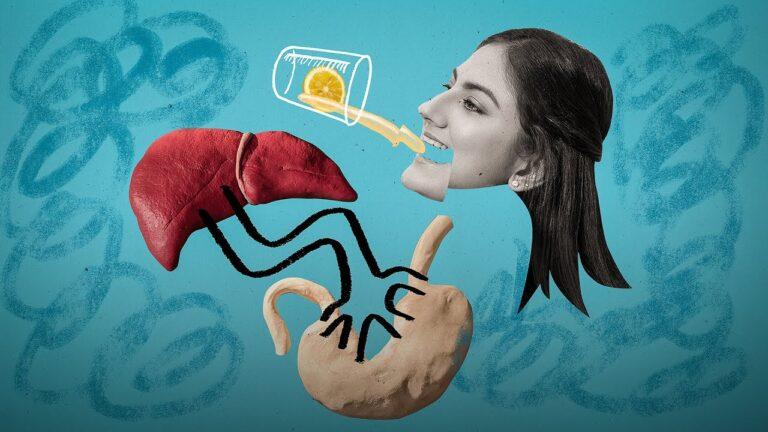Inflammation is the body’s natural response to infection or injury. It helps protect and heal the body. However, chronic inflammation that persists can lead to various health issues. Making dietary and lifestyle changes can help reduce inflammation. Here is an overview of the anti-inflammatory diet and how it can benefit health.
What is Inflammation?
Inflammation is characterized by redness, swelling, heat, and pain. It is the body’s protective response to harmful stimuli. When tissue is injured, the immune system releases white blood cells, antibodies, and other molecules to the site of injury to start the healing process.
Acute inflammation is short-lived and an essential part of the healing process. However, chronic inflammation persists over time and can be harmful. Chronic inflammation is associated with various diseases like rheumatoid arthritis, psoriasis, inflammatory bowel disease, and more.
The Role of Diet
Diet plays an important role in controlling inflammation. Certain foods are pro-inflammatory and can exacerbate inflammation. Meanwhile, an anti-inflammatory diet full of vegetables, fruits, whole grains, fish, nuts, and healthy oils has been shown to reduce inflammation.
Foods That Can Cause Inflammation
These foods are low in nutrients and fiber. They promote inflammation and have been associated with chronic diseases.
Foods That Reduce Inflammation
These foods are high in antioxidants and omega-3 fatty acids that help control inflammation (5).
Benefits of Anti-Inflammatory Diet
Adopting an anti-inflammatory diet provides many benefits:
Improves Symptoms of Chronic Inflammatory Diseases
The anti-inflammatory diet is especially helpful for people with rheumatoid arthritis, lupus, psoriasis, Crohn’s disease, ulcerative colitis, and other chronic inflammatory conditions. Consuming more anti-inflammatory foods while limiting inflammatory foods can significantly reduce symptoms like joint pain, fatigue, and gastrointestinal distress.
Reduces Risk of Chronic Diseases
Chronic inflammation contributes to heart disease, diabetes, cancer, and neurodegenerative diseases. An anti-inflammatory diet reduces the risk of developing these chronic diseases.
Aids Weight Loss
Obesity is characterized by chronic low-grade inflammation. The anti-inflammatory diet is high in fiber, antioxidants, and healthy fats that promote weight loss. Losing weight also reduces inflammatory markers.
Improves Gut Health
The anti-inflammatory diet is rich in prebiotics like garlic, onions, and fiber that feed healthy gut bacteria. It helps improve the diversity and balance of gut microbiota to support digestive health.
Tips for Following Anti-Inflammatory Diet
Transitioning to this diet may seem overwhelming initially. Here are some tips to get started:
Gradually Increase Anti-Inflammatory Foods
Don’t attempt to overhaul your diet overnight. Slowly incorporate more vegetables, fruits, herbs, spices, nuts, fish, and olive oil into your meals.
Meal Plan and Meal Prep
Take time on weekends to plan out meals and prep ingredients to set yourself up for success during the busy work week. Chop vegetables and cook grains and proteins in advance.
Watch Out for Added Sugars and Bad Fats
Read nutrition labels closely and avoid foods with added sugars, trans fats, and other inflammatory ingredients. Be wary of packaged foods and opt for whole food options.
Allow Occasional Indulgences
Deprivation can backfire and derail efforts. Allow yourself a small treat once in a while so you don’t feel restricted. Moderation is key.
Enlist Support System
Let your family and friends know you are making this change. Their encouragement and doing it together makes it easier to stick to the diet.
Sample Anti-Inflammatory Diet Meal Plan
Here is what a day on the anti-inflammatory diet may look like:
Breakfast
Lunch
Snacks
Dinner
Anti-inflammatory diet is a nutritious way of eating
The anti-inflammatory diet is a nutritious way of eating focused on whole, unprocessed plant foods and healthy fats. It helps reduce chronic inflammation and lower disease risk. Make this a lifestyle change rather than a temporary quick fix diet. Be patient as it takes time for the body to respond and see benefits. Consistency is key for optimal health.
So in summary, the anti-inflammatory diet:
By making simple modifications to your daily meals and snacks, you can fight inflammation and feel your best.
Workout and Fitness News
Subscribe to our mailing list and get interesting stuff and updates to your email inbox.
Thank you for subscribing.
Something went wrong.
This content was originally published here.




















